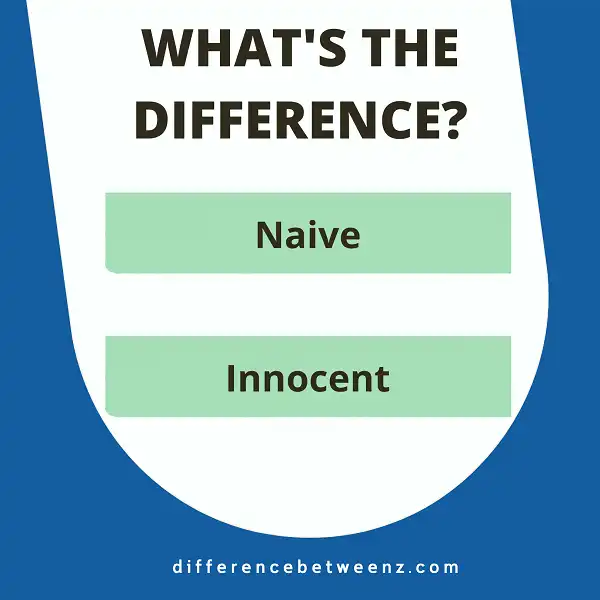When most people think of innocence, they think of someone who is naive. Naive individuals are often considered to be innocent because they have not experienced the harsh realities of life. However, there is a big difference between being naive and being innocent. Innocence refers to a state of purity, while naivety describes a lack of knowledge or experience. Ultimately, innocence is much more positive than naivety, and it should be protected at all costs.
What is Naive?
Naive refers to a lack of experience, knowledge, or sophistication, often in relation to innocence or a childlike quality. The term can be used to describe someone who is gullible or easily fooled, as well as someone who is unsophisticated or naïve about the world around them. Naive can also be used in a more positive way to refer to someone who is unsullied by the negative aspects of life, such as cynicism or disillusionment. Ultimately, the term reflects a judgment about another person’s level of experience and understanding.
What is Innocent?
The word “innocent” can have a number of different meanings. In its most basic sense, it refers to someone who is not guilty of a crime. However, it can also refer to someone who is naïve or unsuspecting. In other cases, it may be used to describe something that is pure and unsullied. No matter how it is defined, the concept of innocence is one that is often revered. To many people, innocence represents hope, possibilities, and a time before the burdens of life have been shouldered. It is a reminder that, no matter what happens, there is always the potential for redemption and new beginnings. For these reasons, the idea of innocence holds a special place in the hearts of many.
Difference between Naive and Innocent
Naivete is characterized by a lack of sophistication or knowledge. It can be used to describe someone who is new to a situation or who doesn’t have a lot of experience. Naivete can also refer to a childlike simplicity or innocence. Innocence, on the other hand, is associated with purity and a lack of corruption. An innocent person is free from wrongdoing or sin. They may also be naive, but not all naive people are innocent. Naivete is often used to describe people who are too trusting or who don’t see the potential for harm in a situation.
Innocence, on the other hand, suggests a complete lack of guile or deception. Someone who is innocent is not capable of harming others because they are not aware of the potential for harm. Naive people can be taken advantage of because they don’t know any better, but innocent people are beyond that because they wouldn’t knowingly do anything to hurt someone else.
Conclusion
Naive individuals are those who have not had much life experience and, as a result, may be more trusting of others. Innocent people, on the other hand, have had negative experiences that have led them to be less trusting of others. The difference between naive and innocent individuals is important to understand because it can impact how you interact with potential customers. If you are targeting naïve individuals, you may want to use a softer touch when marketing your product or service.


